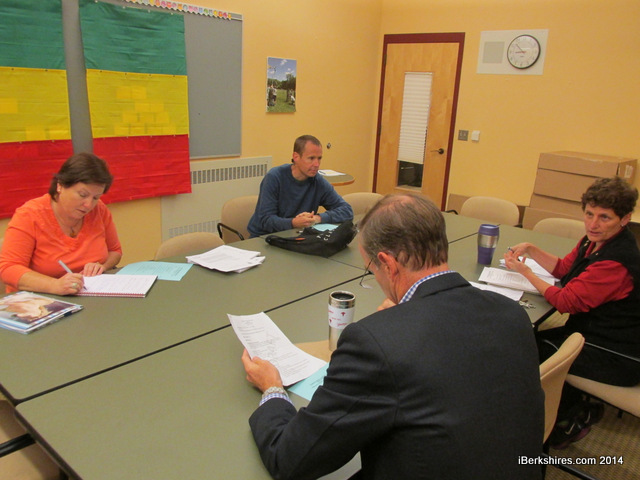SU-71 OKs Superintendent Search; Lanesborough Officials Seek to 'Study' Union
 School Union 71 agreed to a salary of $145,000 to $160,000 for a new superintendent to be shared with Mount Greylock. School Union 71 agreed to a salary of $145,000 to $160,000 for a new superintendent to be shared with Mount Greylock. |
WILLIAMSTOWN, Mass. — The two-school Superintendency Union 71 on Friday morning approved the framework of the search for its next superintendent, even as town officials in Lanesborough prepare to study whether SU-71 should continue.
SU-71, which consists of Williamstown and Lanesborough elementary schools, shares a superintendent with the junior-senior high school in an arrangement referred to as the Tri-District. Superintendent Rose Ellis, who previously had announced she would not seek a renewal of her contract that expires June 30, 2015, told the school committees last month that she will retire effective Dec. 31.
Since last winter, the Tri-District and SU-71 arrangements have been questioned by a member of the Lanesborough Elementary School Committee. Then-Chairman Robert Barton in January
received $1,000 from the Lanesborough Board of Selectmen to conduct a survey of town residents on the issue.
And this month, the Lanesborough Selectmen issued a call for volunteers to serve on an ad hoc research committee to look at "Regional School Options."
Among the options the committee is charged with studying are: 1. maintaining the status quo; 2. remaining in the Mount Greylock Regional School District but withdrawing from SU-71; 3. expanding the Mount Greylock Regional School District to include the two elementary schools under one elected school committee; 4. "shift out of Mt. Greylock region" and SU-71 ... "go into Central Berkshire (possibly bringing Williamstown and Mount Greylock along)."
Neither Barton nor fellow committee member James Moriarty, who also both serve on the SU-71 Committee, attended Friday's meeting. The meeting had a quorum of its six members by virtue of having all three of the Williamstown School Committee representatives and Regina DiLego, the current chairman of both the SU-71 and LES committees.
Among the issues on the agenda Friday morning was SU-71's stand on whether to seek a permanent Tri-District superintendent or hire an interim superintendent to fill out the remainder of Ellis' term.
Williamstown Committee member Dan Caplinger asked DiLego if she had a sense of where her colleagues on the Lanesborough Committee stood on that question.
She said she was not sure of Moriarity's position but more certain of Barton's.
"Obviously, Bob doesn't support it," DiLego said. "He wants time to investigate whatever he wants to investigate and change whatever it is he wants to change."
Proponents of maintaining the current arrangement argue that sharing a central administration between the elementaries and their junior-senior high school allows for coordinating curricula and a smooth transition for students from both elementaries to Mount Greylock.
"An existing superintendency union may be dissolved by the vote of the local school committees representing a majority of the participating districts and by a two-thirds vote of the joint union school committee. The chairperson of the union school committee must then submit to the Commissioner of Education a written request for approval of the proposed dissolution by the state Board of Education. The commissioner and the Board of Education will consider the dissolution request following a review of each district’s proposed educational plan. This review ensures that the proposed dissolution will not impair the educational opportunities provided by each district, and that all contractual rights and responsibilities of the school system with regard to its employees have been met."
In the same email, DESE's Christine Lynch points out that SU-71 was blessed by the state in 2008 as part of a long-term strategy to "further align the elementary districts with the Mount Greylock Regional District."
The two-town Mount Greylock district has been in existence since 1960.
Tags: salary, school union, SU 71, superintendent,
 School Union 71 agreed to a salary of $145,000 to $160,000 for a new superintendent to be shared with Mount Greylock.
School Union 71 agreed to a salary of $145,000 to $160,000 for a new superintendent to be shared with Mount Greylock.














